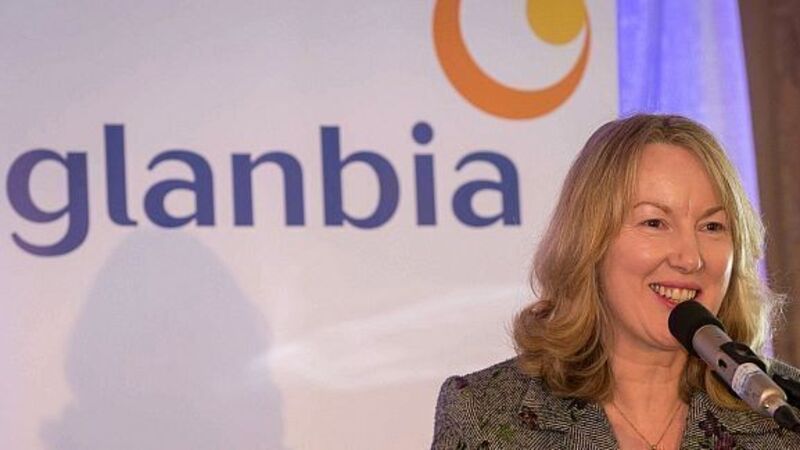Performance nutrition drives Glanbia growth

Glanbia’s H1 earnings increased by close to 11% compared with the same period last year in what company chief executive Siobhán Talbot described as a “strong set of results”.
That firm’s earnings growth was driven primarily by its performance nutrition (GPN) business which accounted for almost half the company’s earnings.
The performance nutrition business segment’s earnings before interest tax and amortisation (EBITA) totalled €81.7m - a 35% increase on H1 2015 on a constant currency basis.
Ms Talbot said she was pleased with the progress of GPN which develops products aimed at the sport and fitness markets, including protein shakes.
Growth would moderate to more modest and sustainable levels over time, she accepted.
“Sales of performance nutrition brands and value-added nutritional ingredients showed good growth in the first half of 2016 delivering on our vision to be a leading nutrition business.
“Our overarching strategy is to continue to get growth across the group. Various dynamics in various periods of the year and indeed full years can accelerate that and we’re very pleased with the 35% that we had in the first half [of 2016].
“We very much look to that long-term sustainable growth rate and we’re obviously not saying that that level of growth will be sustainable but if you take our overall guidance for the year that we’ve reiterated of 8%-10%, growing performance nutrition is an important factor within that,” Ms Talbot said.
GPN’s growth will be increasingly driven by new product innovations rather than breaking into new markets.
Ms Talbot said she expected continued “pull” on pricing in its Irish dairy division after a 4.9% decline in prices in the first half of the year.
Glanbia described Dairy Ireland’s performance as “satisfactory” despite a 3.3% decline in revenue to €356.9m which reflected the continued price drop as well as a 1.1% increase in volumes.
Ms Talbot said conditions for “anybody in the dairy space are a bit challenging” but noted that Dairy Ireland delivered a modest profit increase in the first six months of the year.
The company is dealing with currency headwinds arising from both the relative strength of the dollar and the uncertainty created by the UK’s decision to leave the European Union.
Ms Talbot said the UK is not a particularly big market for Glanbia but like all other corporates, the Irish firm doesn’t like uncertainty and currency volatility caused by the Brexit vote would need to be monitored.
Similarly, Glanbia is “always watching” the dollar-euro exchange rate and is used to managing the associated risk.
The relative strength of the dollar against other currencies can have a marked effect on demand in other markets, such as Brazil, however.
Ms Talbot said the dollar’s strength was actually more of an issue last year than it has been in the opening half of 2016 though.
The company remains on the lookout for potential acquisitions and has a good pipeline of deals.
Ms Talbot said, however, that it is difficult to be prescriptive about how many deals would be completed or when.












